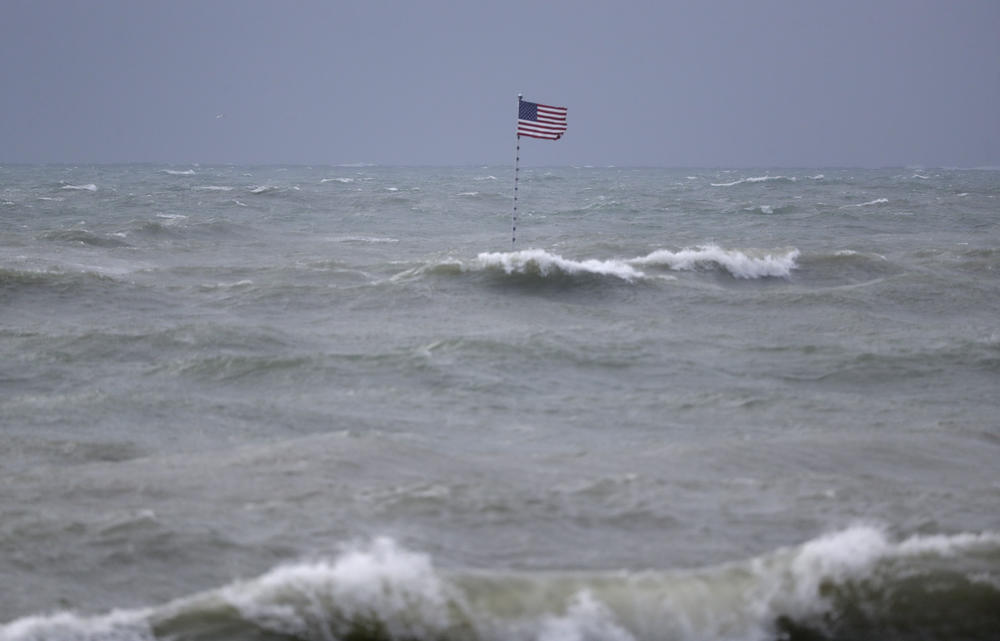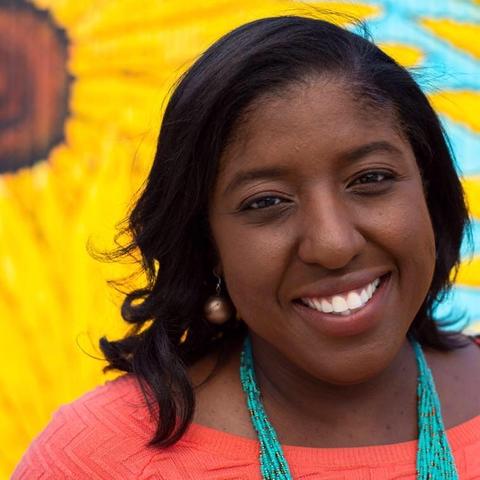
Caption
An American flag flies from the shipwreck of the Breconshire, as waves churned up by Tropical Storm Isaias crash around it, Sunday, Aug. 2, 2020, in Vero Beach, Fla. Isaias weakened from a hurricane to a tropical storm late Saturday afternoon, but was still expected to bring heavy rain and flooding as it barrels toward Florida. The Breconshire was a cargo ship that ran aground in 1894.
Credit: AP Photo/Wilfredo Lee


